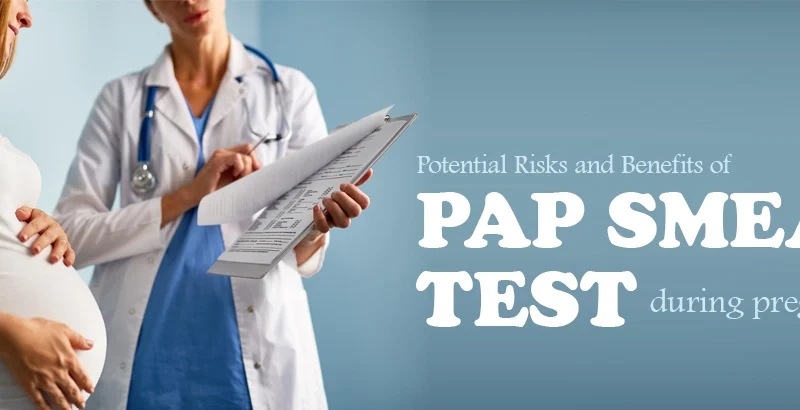Importance of Pap Smear Test During Pregnancy

A Pap Smear Test, also known as cervical cytology, screens for cervical cancer in the cervix.
A woman’s age and medical history will determine the number of times you should get a Pap smear test conducted. Experts from the American Cancer Society recommend cervical cancer screening starting at the age of 25. Generally, everyone between 21 and 29 should get their pap test done every three years. A Pap test is done every five years for women between 30 and 65 years old.
During pregnancy, it is the general norm to visit a healthcare practitioner to check the progression of your pregnancy and the baby’s development inside you. From the first trimester of your pregnancy, a Pap Smear Test is necessary!
When and How is the Pap Smear Test Done During Pregnancy?
Most healthcare practitioners recommend getting a Pap Smear Test done within the first two visits of your pregnancy, especially during the first trimester. In case you’ve missed out, or didn’t get it done during the first stage of your pregnancy, this test will be necessary in the second trimester. Well! It is possible that, due to hormonal fluctuations during pregnancy, a Pap Smear Test may give false positive results, so the healthcare provider will take it again after delivery.
The process is fairly simple. Your healthcare practitioner will insert a speculum into your vagina to offer a clear view of your cervix. This is done while lying on your back with your feet in stirrups. A brush collects cells from your cervix. The cells are then sent to a laboratory for culture and analysis.
What are the Benefits of a Pap Smear Test During Pregnancy?
A Pap Smear detects any abnormal changes in the cervical area that could lead to cancer.
There are other benefits of Pap Smear Tests during pregnancy:
Detect Cancer Cells Early
1 to 3% of would-be-mummies are diagnosed with cervical cancer – one of the most common malignancies in pregnancy. A Pap Smear Test uncovers abnormal cells that appear in the cervical tissue, leading to cancer growth and spread in and around the cervix. The earlier cervical cancer is detected, the better the survival chances.
Test For Cervical Inflammation
Cervical inflammation, or cervicitis, is a common pregnancy infection. It occurs in the first and third trimesters due to hormonal fluctuations, irritation due to vaginal discharge, itching and pain. It also occurs in sexually transmitted diseases like Gonorrhea, Chlamydia, Genital herpes, etc. Continuous sexual activity during pregnancy can worsen this condition. A Pap test can determine cervical inflammation during pregnancy.
Test For Sexually Transmitted Diseases
Researchers from the Centers for Disease Control and Prevention (CDC) recommend that every pregnant woman should be tested for STDs during pregnancy like Gonorrhea, Chlamydia, etc. All sexually active pregnant women should undergo a Pap Smear Test.
But, at times, the Pap Smear Test results may be abnormal due to hormonal changes during pregnancy, as well as the presence of cysts or infections. As a result, biopsies can wait until your baby is born.
Overall, a Pap smear test during pregnancy is perfectly safe as it doesn’t harm the developing baby inside you. If you still experience problems like light vaginal bleeding after a Pap test that is because the cervix is tender during pregnancy. However, spotting or light bleeding after a Pap Smear Test doesn’t mean there’s a problem. That will stay for only one or two days and quickly turn a brownish colour.
It is recommended to consult your healthcare practitioner for reassurance.


